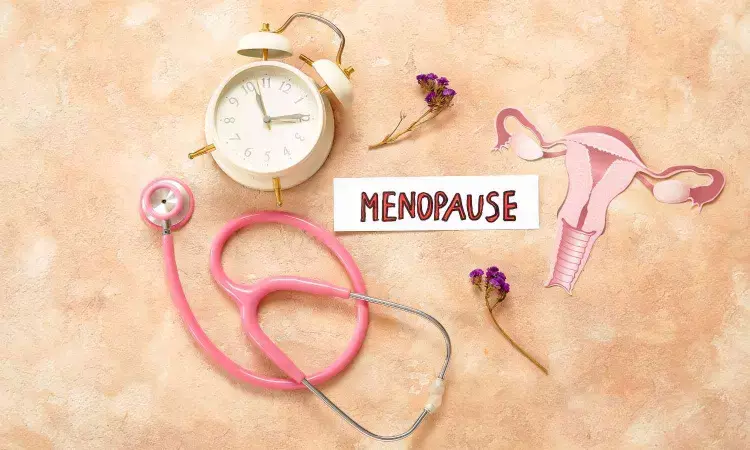- Home
- Medical news & Guidelines
- Anesthesiology
- Cardiology and CTVS
- Critical Care
- Dentistry
- Dermatology
- Diabetes and Endocrinology
- ENT
- Gastroenterology
- Medicine
- Nephrology
- Neurology
- Obstretics-Gynaecology
- Oncology
- Ophthalmology
- Orthopaedics
- Pediatrics-Neonatology
- Psychiatry
- Pulmonology
- Radiology
- Surgery
- Urology
- Laboratory Medicine
- Diet
- Nursing
- Paramedical
- Physiotherapy
- Health news
- Fact Check
- Bone Health Fact Check
- Brain Health Fact Check
- Cancer Related Fact Check
- Child Care Fact Check
- Dental and oral health fact check
- Diabetes and metabolic health fact check
- Diet and Nutrition Fact Check
- Eye and ENT Care Fact Check
- Fitness fact check
- Gut health fact check
- Heart health fact check
- Kidney health fact check
- Medical education fact check
- Men's health fact check
- Respiratory fact check
- Skin and hair care fact check
- Vaccine and Immunization fact check
- Women's health fact check
- AYUSH
- State News
- Andaman and Nicobar Islands
- Andhra Pradesh
- Arunachal Pradesh
- Assam
- Bihar
- Chandigarh
- Chattisgarh
- Dadra and Nagar Haveli
- Daman and Diu
- Delhi
- Goa
- Gujarat
- Haryana
- Himachal Pradesh
- Jammu & Kashmir
- Jharkhand
- Karnataka
- Kerala
- Ladakh
- Lakshadweep
- Madhya Pradesh
- Maharashtra
- Manipur
- Meghalaya
- Mizoram
- Nagaland
- Odisha
- Puducherry
- Punjab
- Rajasthan
- Sikkim
- Tamil Nadu
- Telangana
- Tripura
- Uttar Pradesh
- Uttrakhand
- West Bengal
- Medical Education
- Industry
Hot flashes in menopausal women may signal increased risk for heart and metabolic issues, reveals study

Women experiencing moderate-to-severe vasomotor symptoms face a three times greater risk for metabolic-dysfunction-associated steatotic liver disease (MASLD) compared to those with mild symptom severity, according to research being presented Monday at ENDO 2024, the Endocrine Society’s annual meeting in Boston, Mass.
Vasomotor symptoms include hot flashes or night sweats-symptoms that have become synonymous with menopause.
“This research is significant as it contributes to understanding the link between vasomotor symptoms and cardiometabolic risk factors,” said Eleni Armeni, M.D., M.Sc., Ph.D., a research fellow at the Second Department of Obstetrics and Gynecology, at Aretaieio Hospital National and Kapodistrian University of Athens, in Athens, Greece. “It is crucial for the general public because it emphasizes how hot flashes and night sweats can signal an increased risk for heart and metabolic issues.”
MASLD is also known as non-alcoholic fatty liver disease (NAFLD). In this cross-sectional study, researchers sought to analyze the likelihood of someone developing MASLD related to menopause and the potential link with vasomotor symptoms.
“Women experiencing these symptoms should consult a health care professional to address the symptoms and assess their cardiovascular health,” Armeni said. “Previously, vasomotor symptoms were primarily seen as indicators of estrogen deficiency, but this study suggests broader implications for cardiovascular health related to this hormonal imbalance.”
Armeni and colleagues evaluated 106 peri- and postmenopausal women treated in an outpatient menopause clinic. They estimated steatotic liver disease (SLD) to determine the risk of the fatty liver index. The researchers accounted for age, exercise, alcohol, smoking, a history of menstrual irregularity, and hormone replacement therapy use.
The results showed that 42 women with moderate-to-severe vasomotor symptoms had a three times higher risk for MASLD compared with 64 women who had mild symptom severity. That risk was 9.3 times higher when they limited the sample to those who experienced symptoms within five years after the menopausal transition.
“We hope these findings will encourage health care providers to offer comprehensive care to peri- and postmenopausal women, going beyond discussions solely focused on hormone replacement therapy,” Armeni said.
Reference:
Hot flashes in menopausal women may signal increased risk for heart and metabolic issues, The Endocrine Society, Meeting: ENDO 2024.
Dr Kamal Kant Kohli-MBBS, DTCD- a chest specialist with more than 30 years of practice and a flair for writing clinical articles, Dr Kamal Kant Kohli joined Medical Dialogues as a Chief Editor of Medical News. Besides writing articles, as an editor, he proofreads and verifies all the medical content published on Medical Dialogues including those coming from journals, studies,medical conferences,guidelines etc. Email: drkohli@medicaldialogues.in. Contact no. 011-43720751


